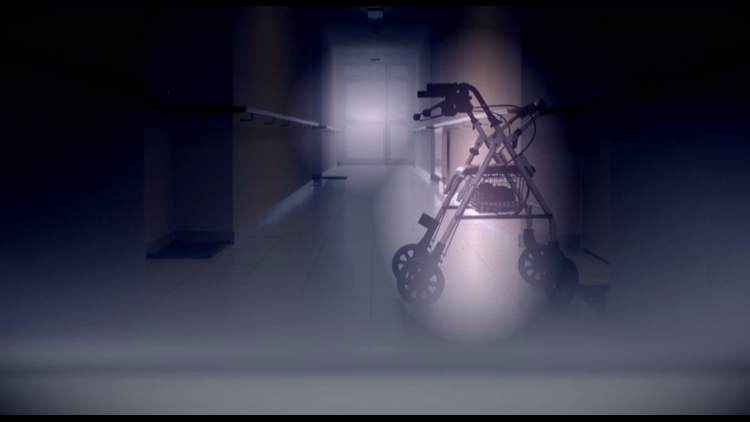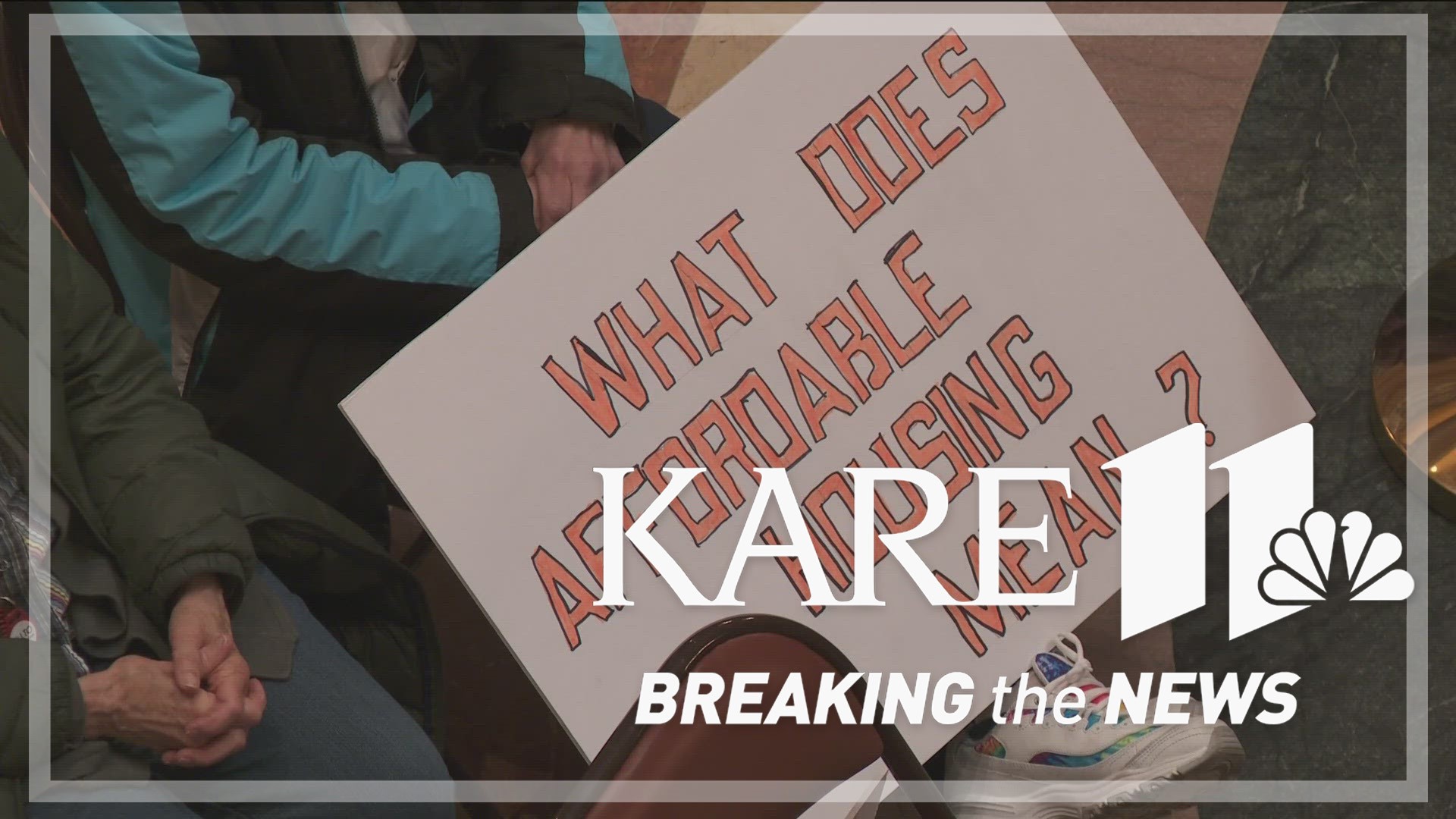PLYMOUTH, Minnesota — There’s been a 20% drop in complaints about maltreatment in Minnesota’s Long Term Care facilities as families were locked out during the COVID-19 crisis. But some families say it was only because they weren’t there to see the neglect.
June Linnertz says she went to visit her dad Jim Gill on March 18th at Cherrywood Pointe of Plymouth.
“He was still in good spirits, obviously always enjoyed a family visit,” Linnertz recalled.

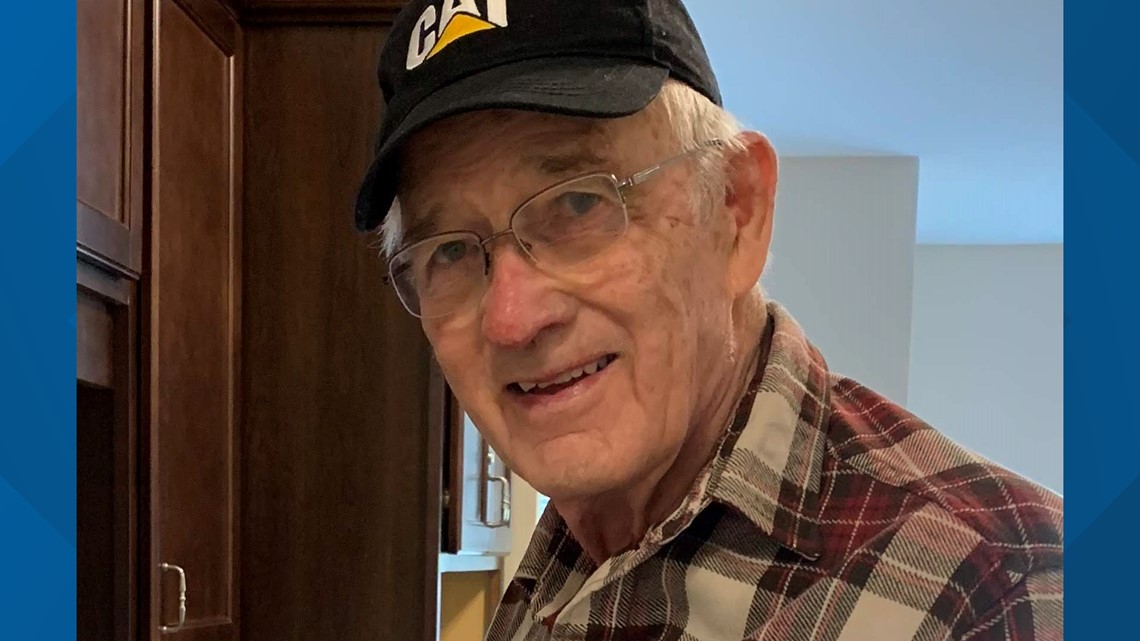
Her dad was suffering from Lewy Body Dementia and although he needed assistance with many tasks, at the time he was still only considered a Level 1 case, the highest functioning level, soon to move to Level 2 at Linnertz’s request.
Linnertz visited regularly, helping with some of her dad’s care. But that March day she says she was told to leave. The facility, like others, was closing its doors to outsiders because of COVID 19.
“I got all the verbal assurances in the world, ‘Don’t worry, we got it’,” she said.
A photo taken by a staff member a short time later, in April, shows her dad standing, smiling, neatly dressed and apparently alert.
Linnertz says she could call her dad on his cell phone, but the staff wouldn’t facilitate video chats. Her dad couldn’t do that on his own.
In phone calls, she says he didn’t understand why his kids hadn’t come to visit and why he was confined to his room for so much of the day.
“He was confused. He thought he maybe did something wrong,” she said.
In late May she said she came by to try to see her dad through the window and was shocked by his appearance.
“He had lost a ton of weight, completely disheveled. He had grown facial hair. Had crust on the corner of his lips,” she said of her once neatly dressed dad. “I was nauseated. I was so sad”
On June 7th, Linnertz took a photo through the window. Her dad slumped over in a wheelchair. His hair untrimmed and unkempt. His shirt was dirty.

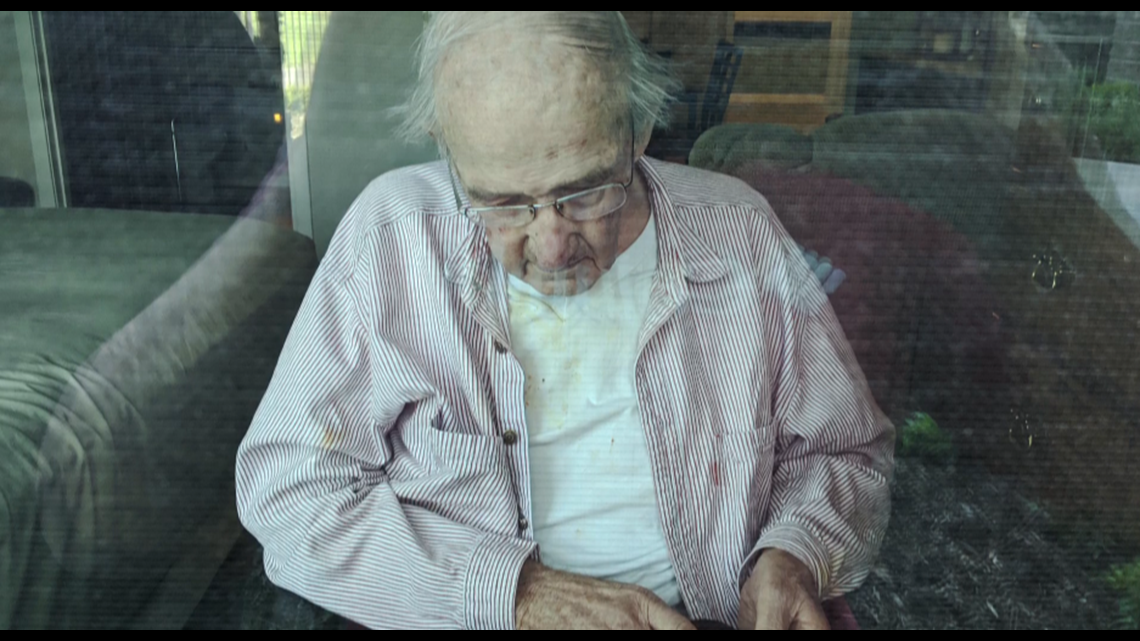
“He didn’t look well. He hardly had the strength to even try to bring his head up a little bit. Heavily soiled,” she remembered.
By this time, Jim Gill was receiving hospice care – and Linnertz wanted to bring him home.
But nothing prepared Linnertz, who works as a death investigator, for what she says she saw when she finally had access to see him in person.
“My dad is lying face down in the mattress and pillow … he is shaking and he is just saturated with perspiration,” she described to KARE 11. Care notes from his hospice agency document the sweat soaked sheets.
Linnertz also found her dad bruised and in pain. Care notes show he’d fallen unattended at least six times in less than two weeks. An aide wrote “bruises from previous falls are now appearing.”
Linnertz says she and a hospice nurse tried to flip Jim over into a more comfortable position. “He immediately started wailing out in pain.”

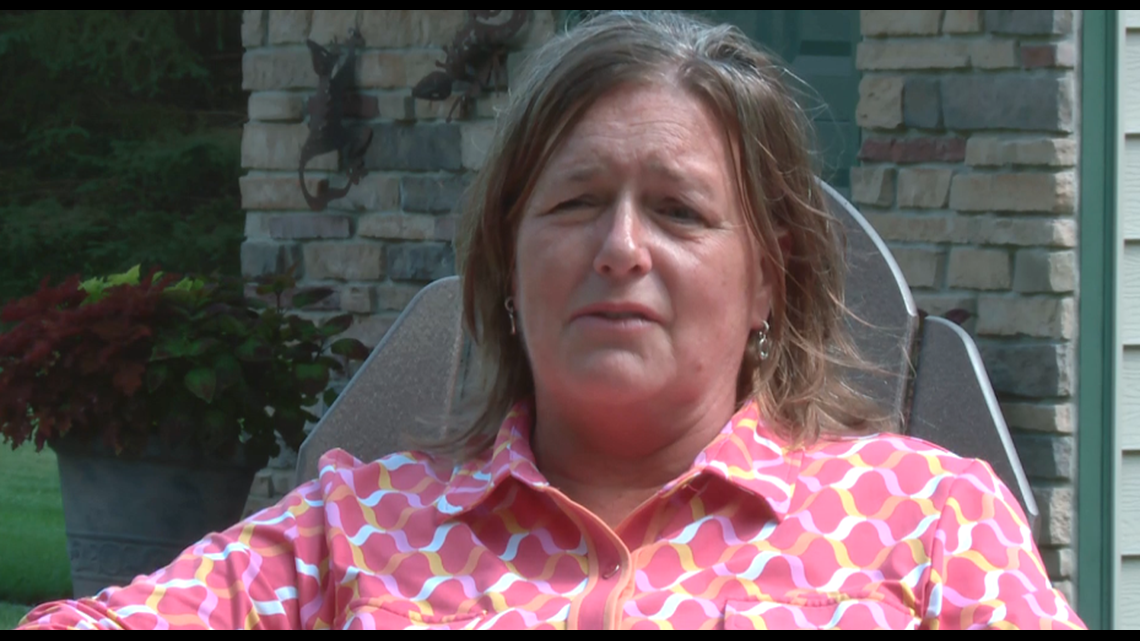
Moments later, she would see why.
“They cut his diaper off and that’s when they called me over and said you’ve got to see this,” Linnertz said. “His genitalia was bright red and the skin was sloughing off already.”
A healthcare worker who saw the scene spoke with KARE 11 and confirmed Linnertz’s account, describing Jim’s treatment as “severe neglect”.
The Minnesota Department of Health is investigating.
Ebenezer, the company that owns Cherrywood Pointe, denies allegations of neglect. They sent the following statement to KARE 11:
We take suggestion of neglect very seriously and remain committed to providing safe and compassionate care to every resident we serve. Recent inspections by regulators found our facility in compliance with applicable local, state and federal laws. While privacy laws prevent us from commenting on specific cases or situations, all concerns brought to our attention by staff or family members are immediately reviewed and acted upon, if necessary. Our employees are required by law to report issues involving substandard care or neglect. We constantly look for ways to improve our procedures, and we take additional actions as circumstances warrant.
So, what happened in that three months Linnertz was locked out?
“I think it comes down to the isolation, the loneliness and ultimately I figured out – the neglect,” she said.
Eilon Caspi – a gerontologist and researcher – says COVID didn’t create problems in some poor performing long term care facilities. It exposed them.

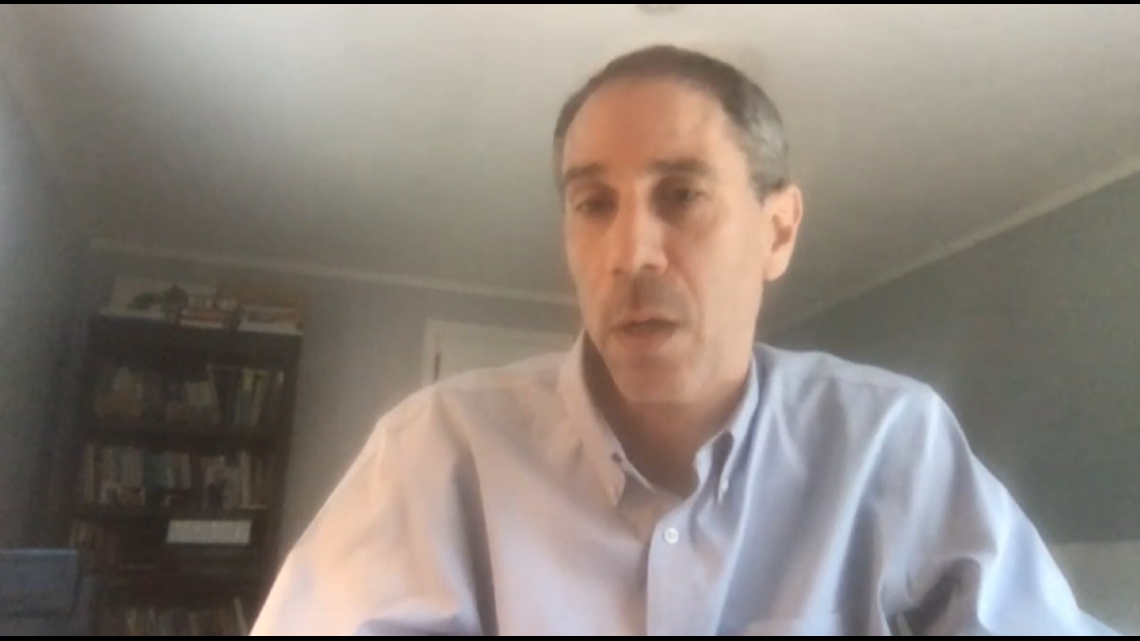
Coupled with health officials temporarily cutting back on site inspections and families not there to keep an eye on things, it created a recipe for disaster.
“It came from a goodwill of protecting residents. But then it spilled over into people dying out of neglect, dying out of loneliness in excruciating emotional and physical pain,” Caspi said.
KARE 11 reviewed data from the Minnesota Department of Health showing a 20% decline over last year in maltreatment reports during the long-term care lockdown.
But the ombudsman’s office was flooded with calls.
“We have seen significant weight loss and other decline in some people in long term care,” Deputy Ombudsman Aisha Elmquist said.
Health officials didn’t open up facilities for approved love ones to visit until August – five months into the pandemic. As part of the Essential Caregiver program, some families, friends and loved ones can now visit in person with approval of the facility.
Leading Age, an industry group, says 68% of senior care residences have implemented that Essential Caregiver program. But, so far, their survey shows just 1 in 4 families is currently signed up.
“Our members are - join families about being concerned about the impacts of prolonged social isolation,” said Kari Thurlow of Leading Age.

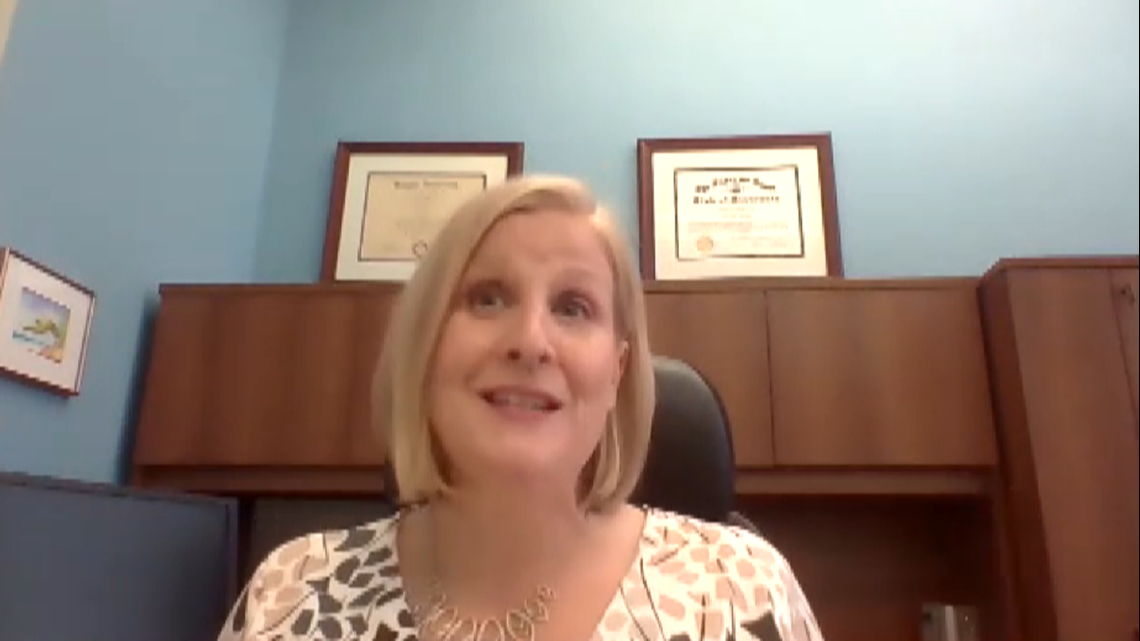
But some experts like Caspi say, though, concerns of spreading COVID 19 inside facilities were valid, Minnesota kept visitation restrictions in place too long.
“The idea of outdoor visits should have been introduced much earlier,” Caspi said.
Thurlow agrees isolation is not a sustainable plan. But she says many things need to happen before long term care facilities are open to all families.
“We cannot go to business as usual with regard to visitation until one of two things happens. Either we have widespread vaccine use which we know is some time away from now. Or widespread access to accurate, rapid testing which we also don’t have at this time,” she said.
“You cannot leave people abandoned,” Linnertz said. She fears what fall will bring, with the pandemic still raging, cold weather making outdoor visits more difficult and some facilities still locked down.
But she no longer worries for her dad. Jim Gill died at her home days after leaving Cherrywood Pointe.
“Do I think my dad would still be alive right now? Yes. Would he still by declining because of the Lewy Body? Absolutely. But not maltreatment. Because guess what I would have been in there. I was his advocate,” she said.
The Minnesota Department of Health is now doing more onsite investigations, especially in the most serious cases. Linnertz has not heard back about their findings in her dad’s case.


